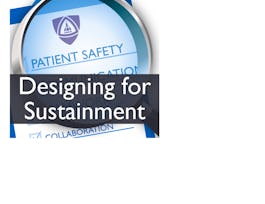Policing has always been psychological challenging. On any given shift police officers may encounter a range of psychological challenges including domestic violence, interacting with people experiencing mental health issues, violent crime, even attending the aftermath of horrible accidents. The long exhausting shifts can also result in stressful person interactions within one’s personal life. The presence of COVID and political issues related to instances of over-policing have increased these stresses even more. This course has two goals. First, we want to inform officers how their stress system works and why they sometimes feel as they do. With this as a foundation we then describe some strategies officers can use to manage this system, giving themselves much needed breaks from the stress response and overall empowering them with a greater sense of control over how their bodies react to stress.



Understanding and Managing the Stresses of Police Work

Instructor: Steve Joordens
Sponsored by Taipei Medical University [C4CB]
7,492 already enrolled
(418 reviews)
Skills you'll gain
Details to know

Add to your LinkedIn profile
3 assignments
See how employees at top companies are mastering in-demand skills


Earn a career certificate
Add this credential to your LinkedIn profile, resume, or CV
Share it on social media and in your performance review

There are 3 modules in this course
This module consists of two videos, each followed by a short multiple-choice assessment. The first video will describe the biological machinery underlying your stress response; how it works and how it makes you feel. The second video will then consider the stresses of police work and how society's expectations of you with respect to your ability to manage stress is to a large extent an unreasonable ask.
What's included
3 videos1 assignment
This module consists of three videos that break down the NaRLy approach to its three constitute elements, (1) Learning how to NOTICE your stress level, (2) learning how to then use RELAXATION to counter the stress response, and (3) then use the power of active LISTENING to also reduce the stress response in those you are interacting with.
What's included
3 videos1 assignment
As is true for all skills, the biggest factor determining how helpful this course will be for you comes down to that one factor ... how much you practice the skills you learned. To encourage and inform you this last video focuses on how practice works, why the first few practice sessions are the most important to get through, and the benefits you will get if you stick with it!
What's included
1 video1 assignment
Instructor

Offered by
Why people choose Coursera for their career




Learner reviews
418 reviews
- 5 stars
86.63%
- 4 stars
10.73%
- 3 stars
1.90%
- 2 stars
0.47%
- 1 star
0.23%
Showing 3 of 418
Reviewed on Nov 8, 2022
I LIKE THE COURSE AS A POLICE OFFICER AND AN INSTRUCTOR OF POLICE PEACEKEEPERS, THIS IS VERY IMPORTANT TO ME ESPECIALLY IN FACILITATING STRES MANAGEMENT
Reviewed on Mar 27, 2021
Thank you for creating this course and sharing the data on stress relief. I will try to practice the relaxation to heal.
Reviewed on Mar 9, 2021
I thank you for this course. It has helped me a lot in understanding police officers. I do Bible lectures with them and this is an additional understanding. God bless you, sir!
Recommended if you're interested in Health

Coursera Project Network

Johns Hopkins University

University of Michigan

Arizona State University

Open new doors with Coursera Plus
Unlimited access to 10,000+ world-class courses, hands-on projects, and job-ready certificate programs - all included in your subscription
Advance your career with an online degree
Earn a degree from world-class universities - 100% online
Join over 3,400 global companies that choose Coursera for Business
Upskill your employees to excel in the digital economy

